Things change.
Whether we like it or not, the world is changing. Our approach to change matters a great deal as to how we view change, either good or bad. If we adopt a victim-like mentality (passive, entrenched and unaware), any change will likely be “bad.” Whereas, a more valiant approach (active, opportunity-seeking and aware) envisions the same change as “good.” According to William Shakespeare, “There’s nothing good or bad, but thinking makes it so.”
My grandfather, John J. Brown, was a remarkable man. Perhaps it was his farmer’s life, living with weather changes, that made him unafraid of change. Perhaps it was because of his clear understanding and commitment to those things that should never change. Either way, he had an ability to foresee change, and a willingness to do something about it. A valiant approach. During his life he went from successful grocer, to successful peach farmer, to successful cattle farmer. His story of “change with changing times” was so compelling that Georgia Governor Sonny Perdue used him as his primary example in a speech at The Governor’s Leadership Summit.
Growth changes.
Growth is a deceptive – and potentially deadly – concept. In fact, growth for the sake of growth is characteristic of cancer. A focus on the right kind of growth, that is, value growth, is more likely to yield long term success. Revenue growth can produce empty revenues: no profit. Profit growth can be fleeting, or require massive additions to your asset base. Value growth entails operating profit growth, asset reduction, and differentiation.
Markets change.
Market share no longer predicts or guarantees profitability and value growth the way it has in the past. Business history reveals companies who had large market share but were profitability disasters:
- A&P had a high share of grocery sales.
- WordPerfect had a high share of word processor software.
- DEC had a high share of minicomputers.
- Kmart had a high share of the urban discount business.
Customers change.
The customer matters, more than ever. Today’s connected, savvy, and informed customers have more economic power than they’ve ever had. Small companies must focus on their customers in order to survive; customers are their center of gravity. Traditionally, as a company grows, this center moves away from the customer toward the company until it finally rests totally with the company. The shift in economic power is forcing a corresponding shift back towards the customer.
This is not a new business phenomenon. Henry Ford knew his customers well prior to 1920. Customers wanted basic, reliable transportation. He delivered their wants. He was rewarded with sales of 10 million Model-T cars by 1924, and a 55 percent market share. Customers changed. As their personal wealth increased they wanted more colors, styles and choices. Alfred Sloan of General Motors saw this change. Henry Ford didn’t. A few years later Ford’s market share had dropped to 12 percent and it lost automative leadership for the next half century.
Competition changes.
According to strategist Gary Hamel (who asked the question that is the title of this post) the “greatest competition comes from companies that are unborn, unnamed, and are imagination intensive rather than capital intensive.” At minimum, the basis of competition changes. Therefore, (1) focusing only on traditional competitors and (2) utilizing conventional thinking about competition and the basis of competition will not serve you well.
If you had told my grandfather that he was “changing his business model” he probably wouldn’t have understood you. He did, however, understand that the important things in life are simple, just not easy. He would have said, “Things are changing. I need to make some changes, as well.”
Peachy.
In Other Words…
For the times they are a-changin’ – Bob Dylan, The Times They Are A Changin’
“The world is full of obvious things which nobody by any chance ever observes.” – Sir Arthur Conan Doyle, The Hound of the Baskervilles
“The ability to perceive or think differently is more important than the knowledge gained.” – David Bohm
“To see things in the seed, that is genius.” – Lao Tzu
“Learning is a lifelong process of keeping abreast of change. And the most pressing task is to teach people how to learn.” – Peter Drucker
In The Word…
“Let the wise listen and add to their learning, and let the discerning get guidance for understanding.” Proverbs 1:5,6


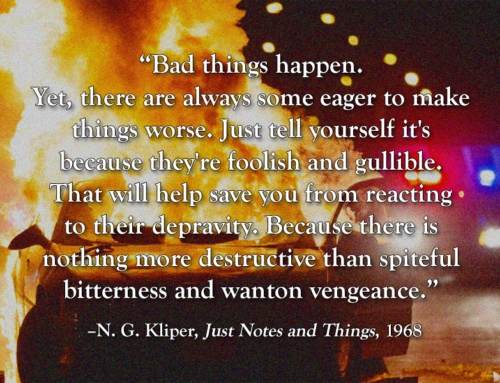
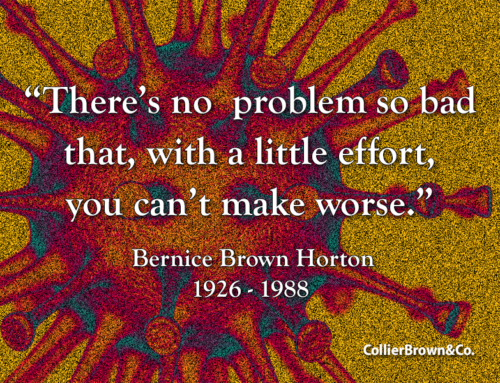
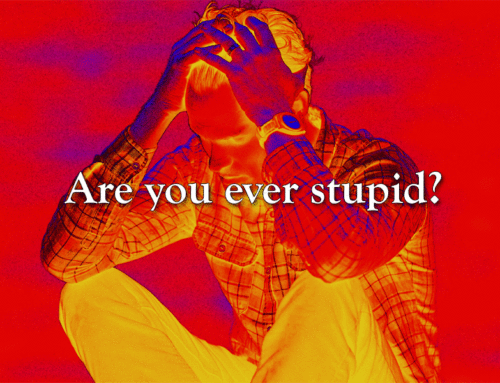

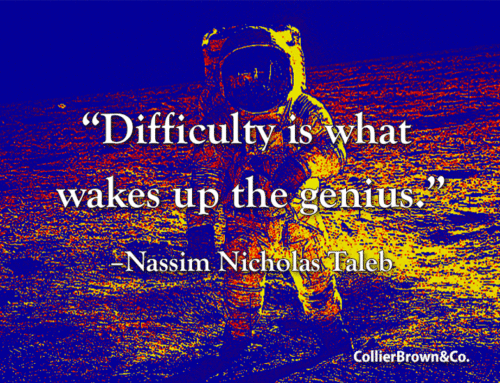
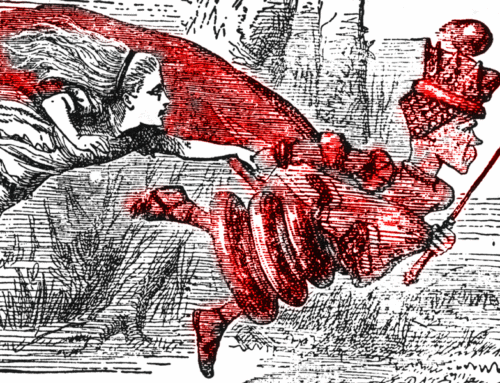
Very well put. I worked for a well known technology firm from 1982-94. They went out of business. We have a “group” on LinkedIn. The main topic of discussion to this day is “What happened”? Like they never saw it coming and are still in shock and denial. How many people that you have worked with that got laid off and are in tears because “I never saw it coming”? As individuals we are often lax in maintaining our competency within our profession. I have done some work with a medical textbook publisher. When working a trade show with them, surrouned by piles of expensive hardback textbooks a common question they were asked was “When will you have this on DVD?” or “I can get this cheaper on-line.” A competitor to this publishing company just laid off their entire direct sales force. In spite of the pointed questions asked of them by their customers, they “never saw it coming”.